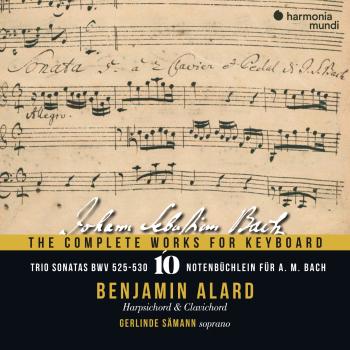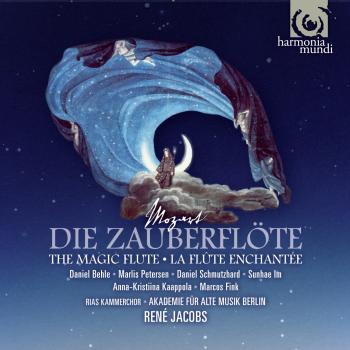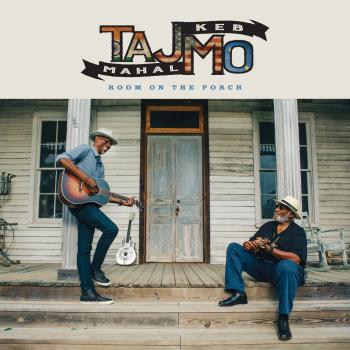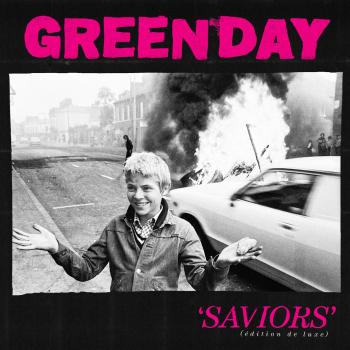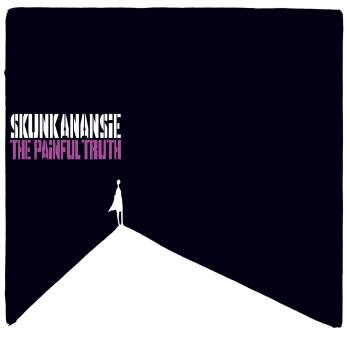
Smashing Thirds (Remastered) Joe Turner
Album Info
Album Veröffentlichung:
1969
HRA-Veröffentlichung:
16.12.2016
Das Album enthält Albumcover
- 1 Rosetta 02:52
- 2 Harry Numa 02:09
- 3 St. Louis Blues 02:57
- 4 Cloud 15 02:32
- 5 Emmaline 02:24
- 6 Willows Weep for Me 03:40
- 7 Caravan 02:53
- 8 Song of the Vagabonds 02:39
- 9 Vipers Drag 02:38
- 10 Love for Sale 04:39
- 11 Effervescent 03:17
- 12 Sweet Lorraine 03:34
- 13 Smashing Thirds 02:14
Info zu Smashing Thirds (Remastered)
Nicknamed "The Boss of the Blues", Joe Turner was a big man (6 feet 4, 300+ lbs), with a voice to match. He recorded a wealth of blues, ballads, boogie woogie, R&B and rock 'n' roll tunes for a multitude of labels. The most significant are those that he made for Atlantic in the 1950s. Turner was born in Kansas City in 1911 and lived there until 1938. His father, a cook, was killed by a train when Joe was four years old. He got to sixth grade in school, but earning money - any money - was a greater imperative. After leaving school he worked part-time as barman-waiter- singer in the Kansas City clubs. Around 1928 Turner teamed up with the famous boogie woogie pianist Pete Johnson, a partnership that would last 13 years. Soon the duo had built up a considerable local reputation, but a first attempt in 1936 to make it in New York City failed. Then, towards the end of 1938 came the invitation (from John Hammond) to participate in the "From Spirituals To Swing" concert at Carnegie Hall. This time New York City was ready for them. Turner and Johnson performed "Low Down Dog" and "It's All Right, Baby" (the initial title of "Roll 'em Pete") on the historic show, kicking off a boogie-woogie craze that landed them a long- running slot at the Cafe Society (until the summer of 1941), along with two other boogie woogie giants, Albert Ammons and Meade Lux Lewis.
Joe Turner, piano, vocals
Hans Rettenbacher, bass
Stu Martin, drums
Recorded November 7th, 1969 at Sono-Press-Studio, Berlin
Engineered by H. Kujawa
Produced by Joachim E. Berendt
Digitally remastered
Joe Turner
Nicknamed "The Boss of the Blues", Joe Turner was a big man (6 feet 4, 300+ lbs), with a voice to match. He recorded a wealth of blues, ballads, boogie woogie, R&B and rock 'n' roll tunes for a multitude of labels. The most significant are those that he made for Atlantic in the 1950s. Turner was born in Kansas City in 1911 and lived there until 1938. His father, a cook, was killed by a train when Joe was four years old. He got to sixth grade in school, but earning money - any money - was a greater imperative. After leaving school he worked part-time as barman-waiter- singer in the Kansas City clubs. Around 1928 Turner teamed up with the famous boogie woogie pianist Pete Johnson, a partnership that would last 13 years. Soon the duo had built up a considerable local reputation, but a first attempt in 1936 to make it in New York City failed. Then, towards the end of 1938 came the invitation (from John Hammond) to participate in the "From Spirituals To Swing" concert at Carnegie Hall. This time New York City was ready for them. Turner and Johnson performed "Low Down Dog" and "It's All Right, Baby" (the initial title of "Roll 'em Pete") on the historic show, kicking off a boogie-woogie craze that landed them a long- running slot at the Cafe Society (until the summer of 1941), along with two other boogie woogie giants, Albert Ammons and Meade Lux Lewis.
On December 30, 1938, one week after his Carnegie Hall performance, Joe made his commercial recording debut with "Roll 'em Pete"/'Goin' Away Blues" for the Vocalion label. "Roll 'em Pete", a fast boogie with thundering piano work by Johnson, became Turner's signature tune. He has rerecorded the song many times over the decades, under a variety of titles ("Jump For Joy", "Roll'em Boy", "Rebecca"). There was no "Harlem Hitparade" yet in 1939 (Billboard started that feature in 1942), otherwise "Roll'em Pete" would certainly have charted. Other significant records from this period include "Cherry Red" (Vocalion, 1939) and "Wee Baby Blues" (Decca, 1941), also frequently re-recorded in later years. Pete Johnson had his own recording career and is largely absent from Turner's recordings between 1941 and 1947, but Joe made sure that he was always backed by first-rate pianists, like Freddie Slack, Art Tatum, Sammy Price and Camille Howard. Joe's first chart entry was "My Gal's A Jockey", in 1946 (# 6 R&B). By then he was recording for Herb Abramson's National label. After moving from Chicago back to Los Angeles in 1947, he recorded for several West Coast labels, including Aladdin, Excelsior, Dootone, Swingtime and Imperial (with Fats Domino on piano).
In March 1951, Ahmet Ertegun of Atlantic Records went to see the Count Basie orchestra at the Apollo Theatre in New York. Basie's singer, Jimmy Rushing, was ill and was replaced that week by Joe Turner. Unfamiliar with the Basie arrangements and insufficiently prepared, Joe got confused and he and the band did not finish together. He was booed off the stage. Ertegun went backstage at the end of the concert, but Joe had already left. Ahmet tracked him down in a nearby bar. Turner seemed depressed. Ertegun told him to pay no mind, that he wasn't really a band singer anyway, but a great singer in his own right. Ahmet convinced him that at 39 he had still a lot of hits left in him. Joe had no recording contract at the time (OKeh had just dropped him) and Ertegun persuaded him to sign with Atlantic.
Turner's very first Atlantic release, "Chains Of Love", proved Ertegun right many times over. Ahmet wrote the number himself (using the pseudonym A. Nugetre - Ertegun spelled backwards), but gave half of the song to pianist Harry Van Walls, "because he played such a beautiful introduction". "Chains Of Love" stayed on the R&B charts for twenty-five weeks, peaking at # 2, and began a chain of Turner smash hits that lasted well into the rock 'n' roll era. The biggest R&B hits from his decade at Atlantic are (apart from "Chains Of Love") : "Honey Hush" (# 1, 1953), "Shake, Rattle And Roll" (# 1, 1954, covered by Bill Haley for the pop market with sanitized lyrics), "Flip Flop And Fly" (# 2, 1955), "Hide And Seek" (# 3, 1955) and "Corrine Corrina" (# 2, 1956, also # 41 pop). At least as good were "TV Mama" (recorded in 1953 in Chicago with Elmore James on slide guitar), "Boogie Woogie Country Girl" (with brilliant piano work from Van Walls, 1956) and "Jump For Joy" (a rock 'n' roll adaptation of "Roll 'em Pete" and the last of his 20 R&B chart entries, peaking at # 15 in May 1958).
In 1956 Joe appeared in the low-budget rock n roll movie "Shake, Rattle And Rock" and he was reunited with Pete Johnson for the album "The Boss Of the Blues". At the age of 45 he suddenly was a rock n roll star. And he hardly had to change his style from the way it was in 1938. But he still didn't get any royalties - the story of his life.
Turner was illiterate and very self-conscious about his inability to read. Doc Pomus, who wrote many songs for Joe, remembered an occasion when he was rehearsing Joe on some new material with a blind pianist. Despite the fact that Turner couldn't read and the pianist couldn't see, Joe insisted on having a lyric sheet in front of him! But Turner had a unique talent to improvise lyrics on the spot and making them rhyme. On stage he could stretch a blues song to 45 minutes or more without ever repeating a verse.
Turner stayed with Atlantic until 1962, but nothing from his last two sessions (one in February 1961 and one in May 1962) was released. The 1960s didn't produce too much of lasting substance for the blues shouter, though he was still in great demand as a performer, both in the USA and Europe. He returned to his roots as a blues singer and recorded with small jazz combos. In 1966 he cut some sides in Mexico for the Orfeon label with Bill Haley's Comets. During the 1970s, Big Joe made several worthwhile albums. Often overlooked is his collaboration with German boogie woogie meister Axel Zwingenberger. Their first album together, "Let's Boogie Woogie All Night Long", recorded in one day (May 22, 1978) in Johnny Otis's studio in L.A., is a masterpiece and won an award equivalent to a German Grammy. A second collaboration followed in May 1981, on the occasion of Joe's 70th birthday. All the tracks on this "Boogie Woogie Jubilee" album were recorded live at Turner's home and released on Zwingenberger's own Vagabond label.
In frail health in the 1980s, Joe performed while sitting in a wheelchair. In 1983 he was inducted into the Blues Hall Of Fame. He died in November 1985 of the combined effects of a heart attack and kidney failure. One of the greatest vocal talents of the 20th century was gone. Big Joe Turner was posthumously inducted into the Rock and Roll Hall Of Fame in 1987.
Dieses Album enthält kein Booklet


